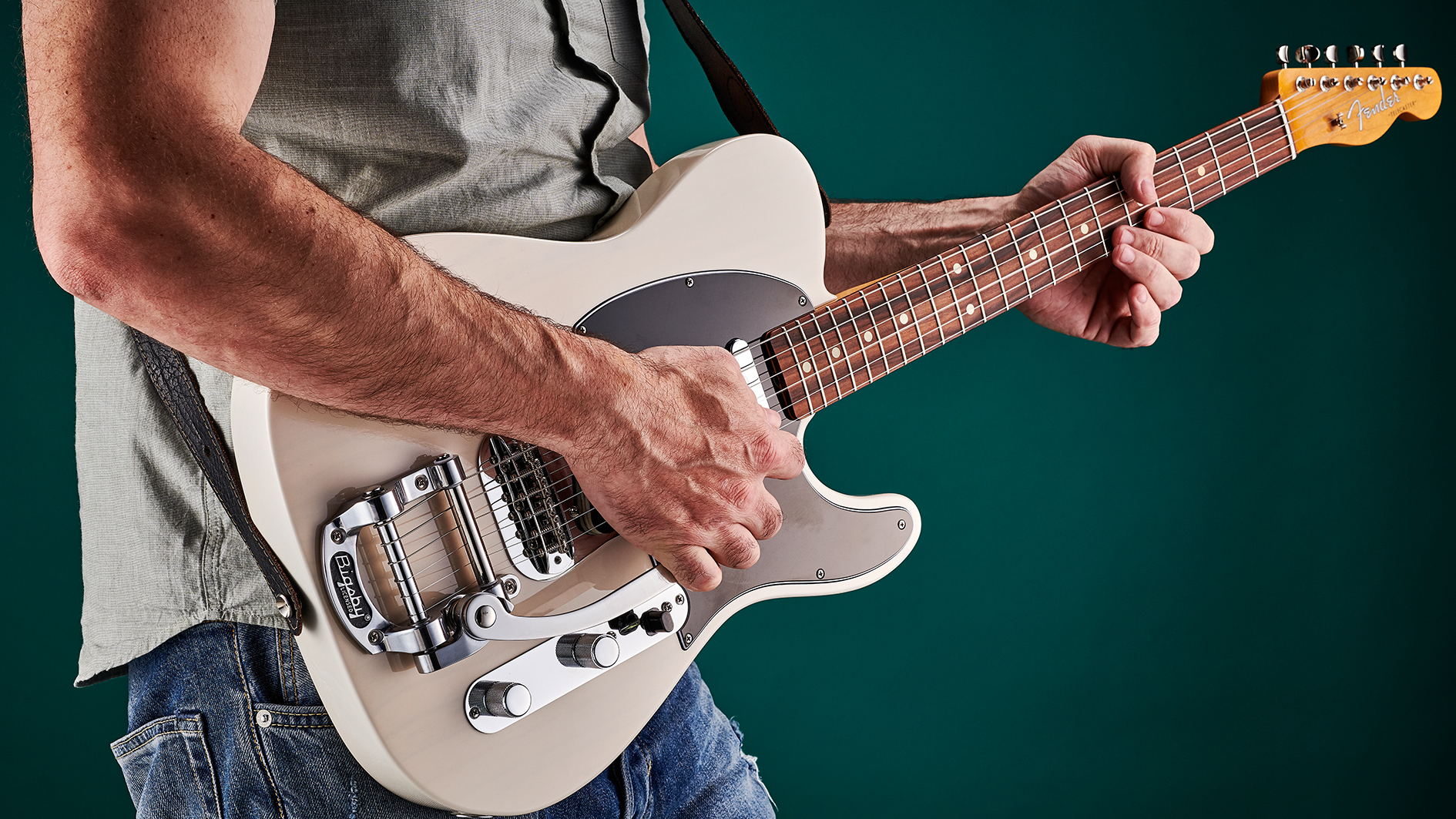
Talent. Knowledge. Wisdom. Everybody possesses these attributes in varying degrees, but let’s face it - who couldn’t use a little more? But is one good without the other? Think about it: You might be a preternaturally gifted electric guitar player. You pick up the instrument and gorgeous licks simply fly from your fingers. But what if you don’t know the theory behind what you’re playing? Would a little knowledge improve your musicianship?
Quite possibly.
We can turn that around, of course. What if you’re not blessed with natural ability, but you’re willing to put in the time to learn, to gain knowledge? Through careful study and diligent practice, could you then break through technical barriers and achieve a greater degree of competency on the guitar? In other words, can the pursuit of knowledge result in talent?
Again, quite possibly.
Lastly, what if you’ve dedicated yourself to the pursuit of excellence on the guitar - you’ve studied theory and have put in your 10,000 hours (this is the conclusion drawn by Herbert Simon and William Chase in which anybody who devotes 416.67 days can achieve expertise at anything) - but you lack the ability to make wise choices? Could a little wisdom further your chances at success?
We would say so.
While the list of “things every guitarist should know” could certainly fill a book, we’ve attempted, in the list below, to offer you a solid CliffsNotes version, one that runs the gamut from super-technical and geeky to obvious stuff that isn’t always so obvious. And we’ve incorporated choice bits of tips and suggestions from some of your favorite guitarists, none of whom would have graduated from their bedrooms to arena stages had they not figured out a thing or two.
All the latest guitar news, interviews, lessons, reviews, deals and more, direct to your inbox!
So dive in and digest. Whatever your playing level might be, there are nuggets of gold for you to scoop up. But while you’re absorbing this list, remember the sage words of Michelangelo: “The greater danger for most of us lies not in setting our aim too high and falling short; but in setting our aim too low, and achieving our mark.”
1 - 25
1. Practice slowly
Everybody knows this, so it’s a mystery why so few do it. Sure, practicing slowly can be a drag - you want what you want when you want it - but unless you’re brilliant and lucky, immediate results aren’t reality. Practicing slowly ensures consistency and accuracy. There’s time to burn. You’ll see.
2. Get your guitar set up properly
“Properly” being the key adverb. A good setup ensures a guitar’s tone and playability. There are many factors to consider here - string gauge, truss rod, nut, pickup height, neck tilt, bridge saddles - all of which you can screw up unless you know what you’re doing. Which you probably don’t, so have a pro do it for you.
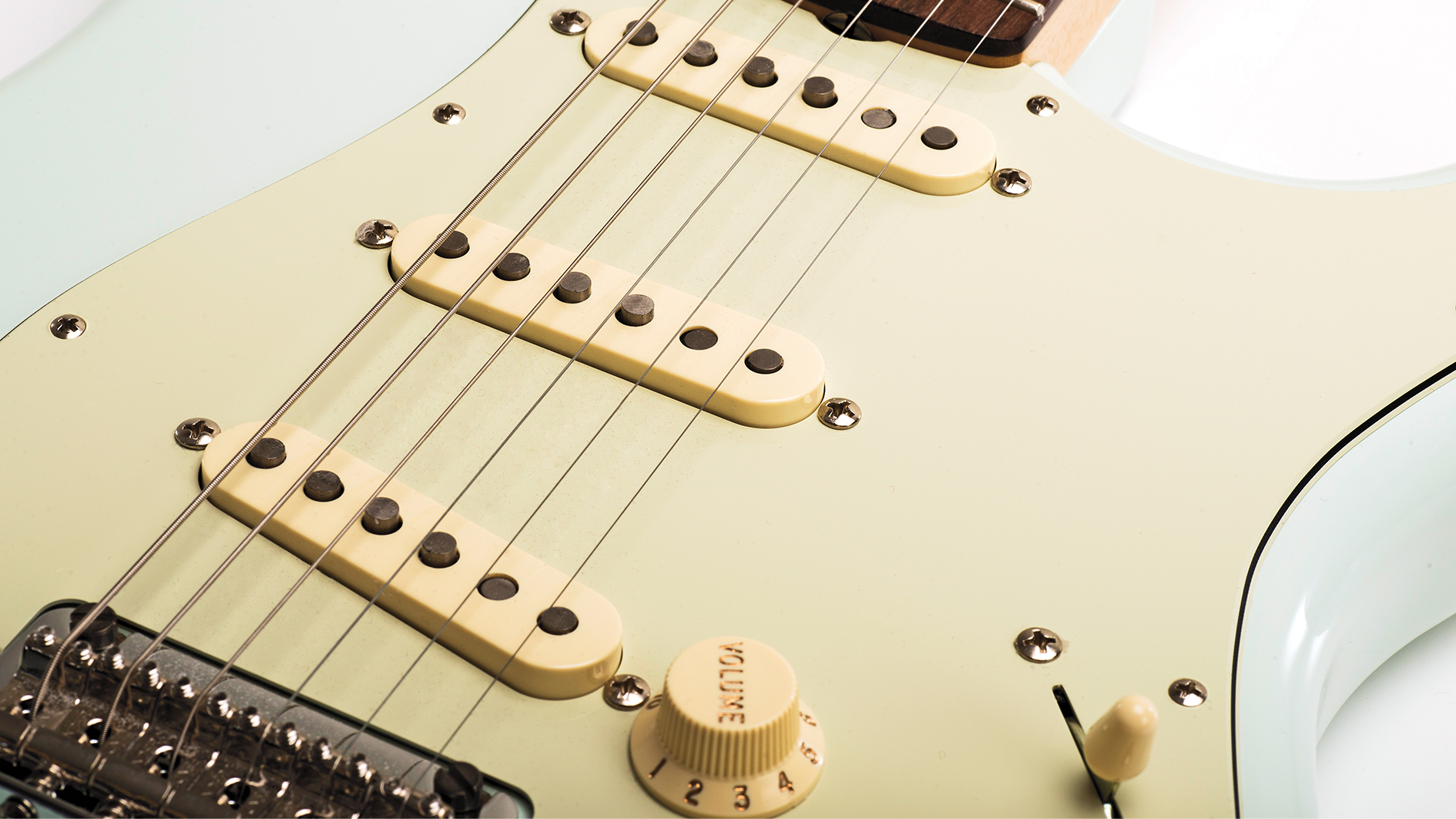
3. Your string gauge is really, really important
How thick or thin your strings are can say a lot about you: Do you like to dig in hard, or do you prefer a light touch? Are you strictly rhythm, or are you a vibrato-drenched soloist? And, as it turns out, string gauge has a lot to do with your sound — thick strings are louder and have more sustain. Don’t be afraid to play around with different gauges; you might find that some songs in your set sound better with looser, thinner strings, and some songs sound better with thick, tight strings.
4. You're never too young to start
If you’re a parent and your young child expresses an interest in playing the guitar, the best thing you can do is let him or her have a go at it. Pick up an inexpensive (but playable) guitar, and let your child explore. Don’t be pushy - too much pressure can overwhelm a child and kill enthusiasm. Learning (and playing) the guitar should be fun. When your child indicates a willingness to stick with it, it’s time to consider formal lessons.
If you’re in your 50s, 60s or 70s and you’ve long wanted to play guitar, there’s absolutely no reason you can’t go for it
5. You're never too old to start
All that crap about “you can’t teach an old dog new tricks” is just that. If you’re in your 50s, 60s or 70s and you’ve long wanted to play guitar, there’s absolutely no reason you can’t go for it.
Indeed, a retiree might be freed of typical adult responsibilities (raising kids, work, etc.), opening up big blocks of time for a hobby. And playing the guitar is a great panacea for the kind of boredom many seniors face. What’s more, playing guitar keeps your mind and fingers active, so get going. Use it or lose it!
6. Nobody wants your girlfriend or boyfriend in the band
There are a few examples in which the addition of somebody’s girlfriend or boyfriend - or husband or wife - as improved the overall quality of the band. But most times a meddlesome partner with limited musical ability can be a fractious and ruinous element (“You don’t need them, honey. You’re the band”). Unless you’re certain that your partner is a star player or writer, keep musical and personal relationships separate.
Joe Satriani

7. Visit bizarro world
Satriani: “If you’re headed into the studio or an audition, be prepared to play the opposite of what you think is right. Learn to entertain crazy suggestions from a band member, engineer or producer as opportunities to shine in a way you hadn’t thought of before. Be prepared to go ‘clean’ instead of ‘distorted,’ or work that humbucker instead of the single-coil. ‘Oh, you want me to play more notes instead of fewer? No problem!’ Sometimes more is… more.”
8. Match string action with the task at hand
Satriani: "Higher action makes a bigger sound but brings with it some intonation and EQ issues that might have an impact on what you’ve got to play. Lower action dampens the sound a bit, but it often can alleviate certain intonation problems while it lightly pre-compresses your sound in a good way - especially if you’re playing parts up and down the neck on all strings."
9. Be sensitive to gain
Satriani: "Watch your gain issues and be sure to match them with the amount of dynamics a particular part may need. The more gain you have, the less overall dynamics you have to work with. Sometimes that’s perfect, but other times you’ve got to dial the gain back to allow a part to breath - especially rhythm guitar."
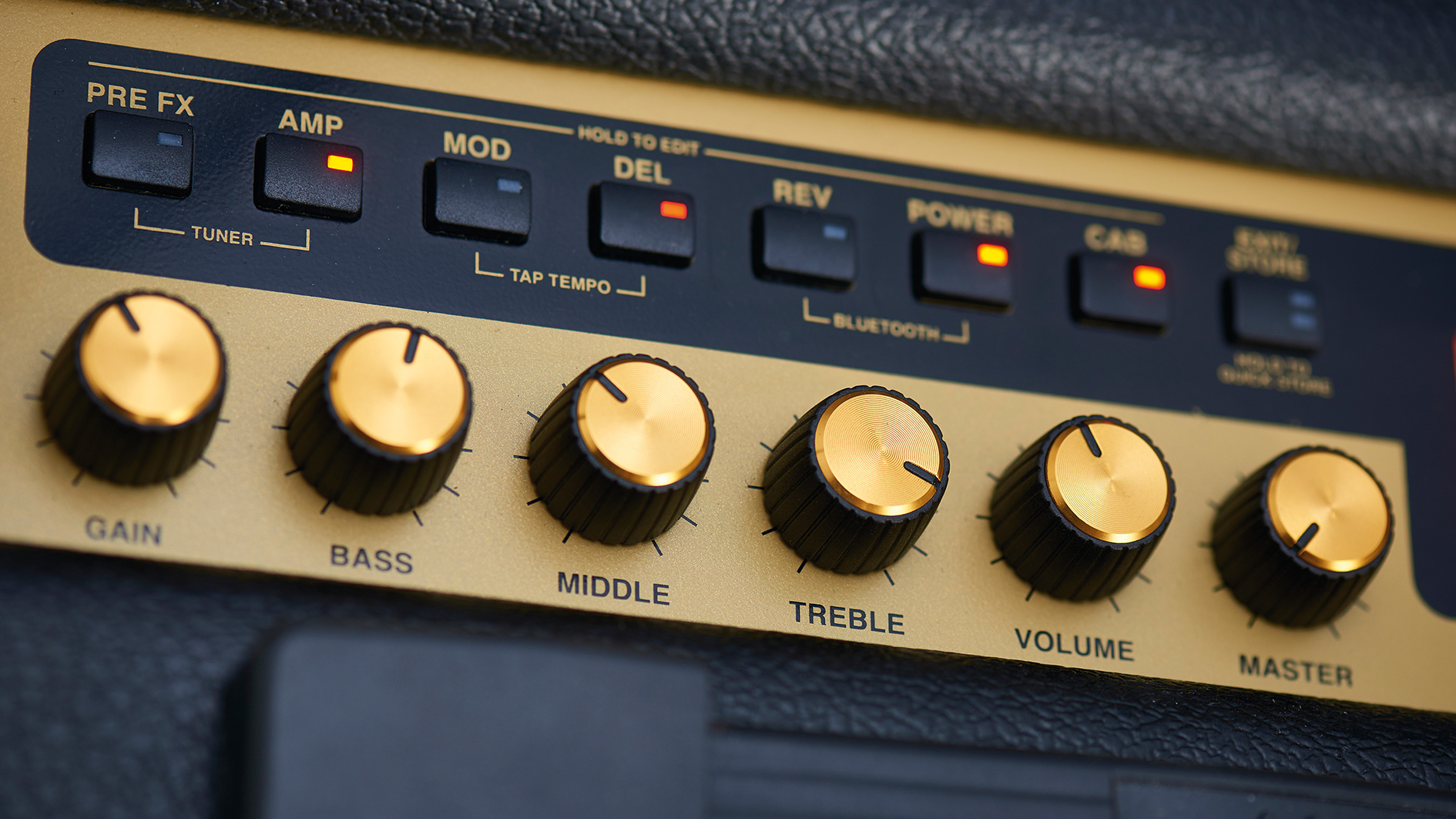
"Try using a limiter and some reverb to ‘extend’ the perceived sustain of a part instead of just turning up the gain. You’ll thank yourself when the mixing starts."
10. Learn the Indian pentatonic
This is also known as the Mixolydian pentatonic. This scale replaces the minor pentatonic’s b3rd with a major 3rd. It has an exotic sound, especially when used over one-chord vamps. It can be useful for soloing over blues and rock sequences.
11. Don't be afraid to move onstage
No, you don’t have to be Nils Lofgren (who used to work a trampoline into his act), but don’t just stand there like a wallflower. You’re a guitarist, but you’re also a performer - so perform! Townshend, Van Halen, Prince - they felt the music and rocked the crowd. They put on a show. So can you. (You can always sit on a stool and do a guitar clinic on the side.)
Steve Vai

12. Impulse is overrated
Vai: "When I record a solo, sometimes I just play one pass, on the fly, and see what happens. But what I usually do is play something a bunch of times. When I sit and work on something, I raise the bar: I’ll sit and take one section, loop it, and play over it until something bizarre and interesting and quirky and lyrical comes out.
"It’s like a meditation. If I just hit record, something will come out, and it could be inspired or it could be crap. But - again - when I sit and work it, I raise the bar."
13. It takes two
Vai: "Collaborating is actually more intimate than most relationships. We all have relationships with our parents, children, friends, co-workers, siblings, lovers - but when you go into a relationship with another songwriter, it’s different.
"When you collaborate to write music, the best thing you can do is to accept somebody for who they are and let them feel able to express themselves. And they will do the same thing for you. And that’s how all the good shit starts to happen."
The process of creation in any field is infinite. Nothing is gonna run out. That’s like telling the universe that it’s not infinite
Steve Vai
14. Play total crap for 10 minutes
Every day, sit down and let it fly. Don’t think, don’t edit yourself, don’t dwell on perfection, and don’t be self-conscious - just play whatever comes into your head. Even if it’s total crap, just play. It’s a good exercise that can help you shake things off. And you might surprise yourself and come up with something cool.
15. The guitar is infinite
Vai: "If you can even conceive of the idea that everything that can be played on the guitar has already happened, then you’re really missing the point of what the creative process is. The process of creation in any field is infinite. Nothing is gonna run out. That’s like telling the universe that it’s not infinite. It’s like saying, 'Okay, this is the end of time and space...'"
16. Learn how to stretch those fingers... properly
As a guitarist, you’ll want to have as much access to as many notes on the fretboard as possible. See how many notes you can hit easily, and then slowly - and we stress, slowly - try to go an extra note. Once you can hit that higher note, try another. But don’t be in a rush: There is a limit to what any human hand can do.
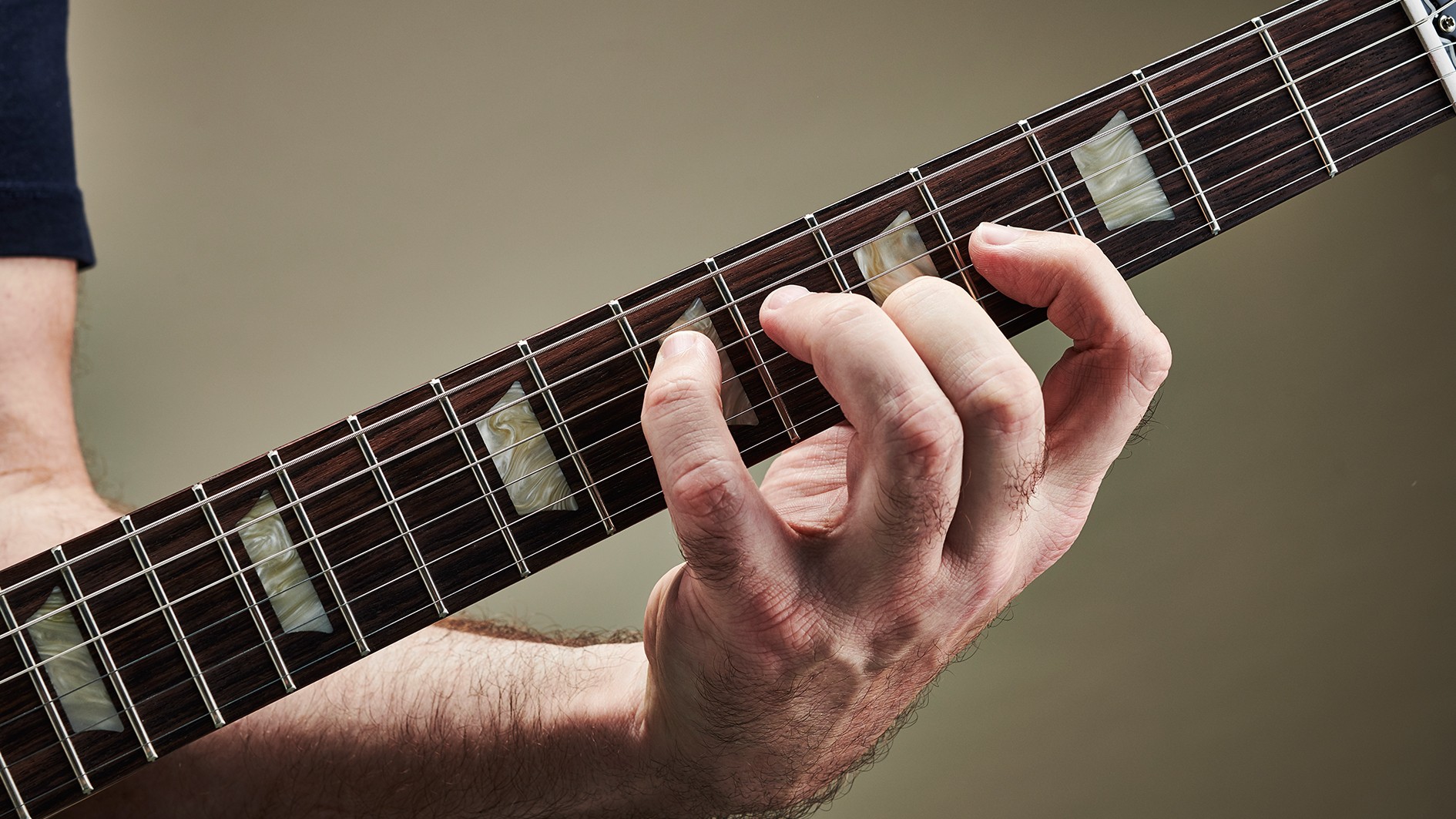
17. Take breaks to avoid getting an RSI (repetitive stress injury)
Just as athletes can injure themselves if they don’t train properly, guitarists can do damage - sometimes long-lasting - if they don’t practice safely. One of the most common Repetitive Stress Injuries is Carpal Tunnel Syndrome, which affects the Median Nerve in your hand. You can reduce this risk by taking a break every few minutes. Play two songs and relax. Your hands will thank you.
Misha Mansoor
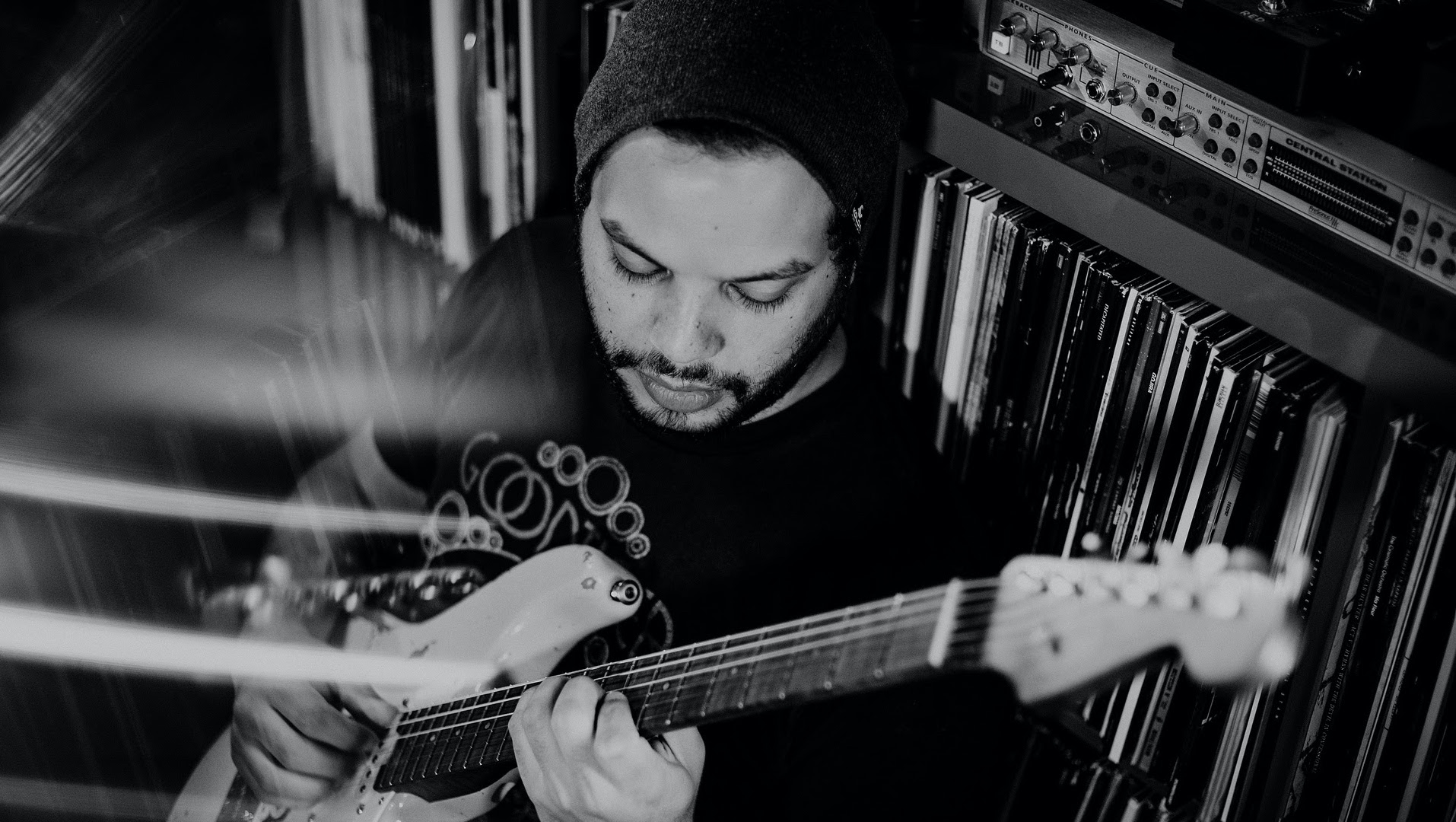
18. Analyze yourself
Mansoor: "People always say to practice to a metronome. I would say that is not enough. Doing that doesn’t give you the feedback of how well you’re really doing. You might think you’re really nailing it, but maybe you’re not.
"My advice is to record yourself to a click and listen back. Analyzing yourself forces you to become a much tighter player. If you’re serious about guitar and you want to be better in the studio, just record, record, record."
19. Create a decent place... to create
If you have an hour or two to play, why waste it looking around for your music-making tools? Set up a decent spot to practice or write - keep it clean and neat - and make sure to have the basics: a music stand, a guitar stand, an amp and any other items you use on a regular basis (slide, capo and picks, of course). Also make sure your wifi signal is strong for whatever online device you use - laptop, tablet, phone, etc.
Joe Bonamassa

20. Learn how to tune your guitar
Bonamassa: "I know this sounds academic, but there are some tricks to tuning your guitar properly. When tuning your guitar, play a bunch of chords you know to make sure they sound right. A lot of times the meter will say the guitar is in tune, but to my ear certain chords might sound a bit off.
"Once you do this homework, you’ll start to see how valuable it is. You might have had experiences where you’re playing live or in rehearsal and you’re saying, ‘Who’s out of tune?’ And the answer might be you."
21. Plug straight into your amp
Bonamassa: "When you remove all the barriers between your guitar and the amp, you’ll force yourself to make something happen. Find the sounds that are in the Les Paul or the Telecaster or whatever it is you’re playing.
"Once you do that, you can augment your sound with pedals. Oftentimes guys start out with 50 pedals or plugins or whatever, and they never really discover the sound that their hands, a guitar and an amp can make."
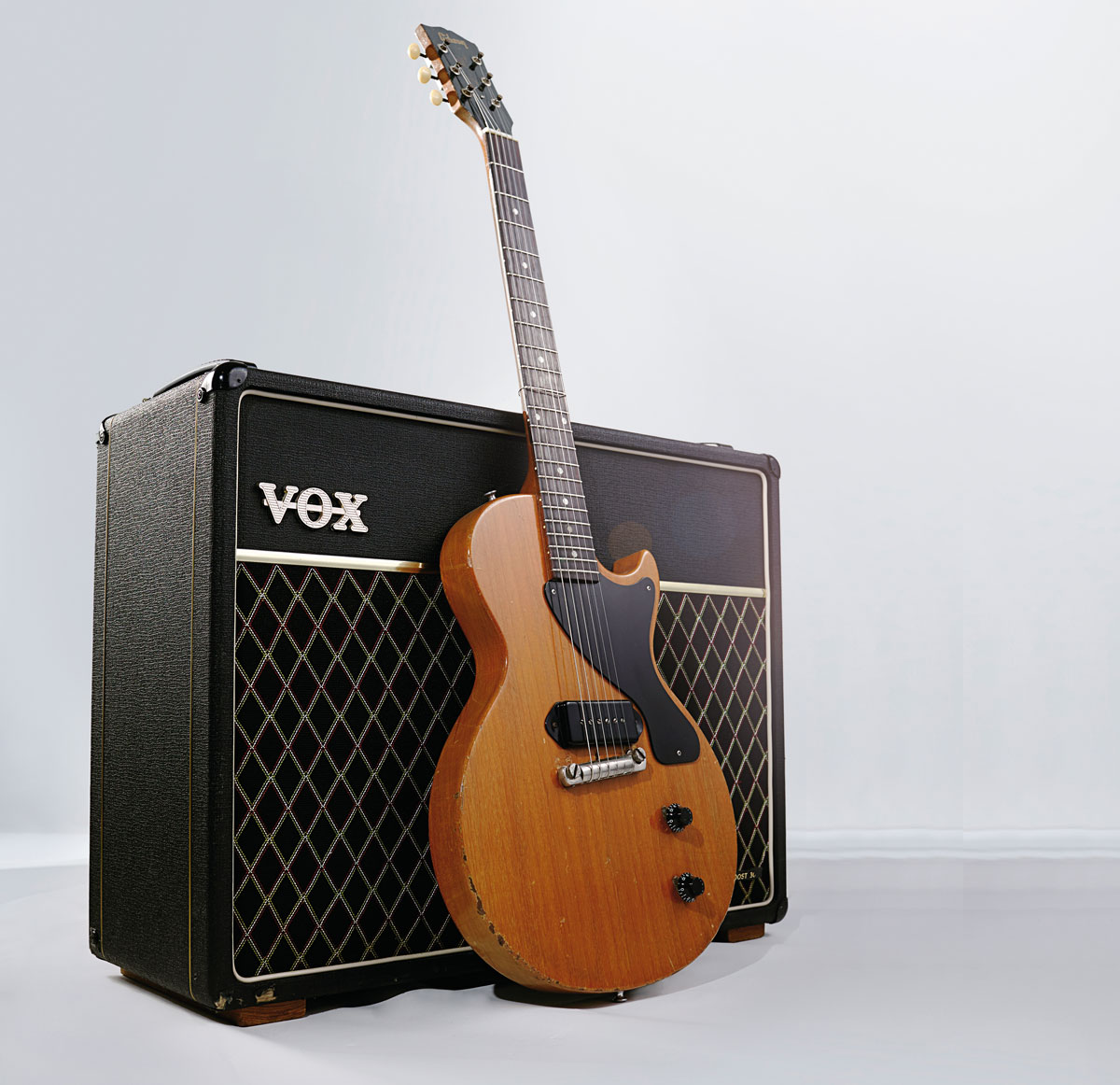
22. Bring gear appropriate for the session
Bonamassa: "If somebody called me to play with BB King, would I show up with two Jubilees, two Van Weeldens and two Dumbles? Or should I show up with a 335 and a Twin, which would really let me serve the music? Time and time again, you’ll see some guy bring the wrong gear to a session.
"It might be right for his gig, but it’s not right for the gig he’s being called in for. This goes for anybody, whether you’re a hobbyist or an aspiring guitar god: Make sure you’re serving the music with what you bring - gear-wise, headspace-wise, the whole deal. If you sound out of place, you’re not doing anybody any good."
As the band gets louder, increasing the presence may really help with the cut and general audibility of your guitar
23. Learn what the presence knob does
Presence is for dialing in your tone for different environments. On traditional amps, the presence control is quite separate from the main EQ. It works in the power section, often controlling the negative feedback. As such, it’s worth setting your bass/mid/treble how you like them, then tuning the presence to taste, depending on your environment. As the band gets louder, increasing the presence may really help with the cut and general audibility of your guitar.
24. Listen to music you don't like
We all have certain types of music that we just don’t get. You might be a rocker who thinks classical music is boring; or maybe you’re a blues purist who can’t stand metal. It’s kind of like the way people feel about broccoli - yeah, you know it’s good for you, but you know, it’s broccoli. Get over it. Give other types of music a chance.
25. Be like James Taylor
Add new flavor to your songs by turning straight major chords into major 7ths, major 7ths into major 9ths, straight minors into minor 7ths, minor 7ths into minor 9ths, and so on.
26 - 50
26. Know when to put the guitar down
A dedicated practice routine is important, but when it becomes too routine, you can get in a rut playing the same things over and over. Sometimes the best way to reboot yourself is to put the guitar down for a while - a day, a few days, maybe even a week.
When should you pick it back up again? You’ll know… Your heart will tell you. Chances are, you’ll come back to the instrument with a new perspective. Does this conflict with Tom Morello’s advice? Yep! You need to mix and match here, people, to find the path that works for you.
27. Know who you are
Some guitarists are freaky virtuosos and can play any type of music with any type of band. Most people can’t work that jack-of-all-trades thing. If blues is your thing deep down and you just can’t understand jazz, stick with the blues. If jazz is in your blood and you just don’t feel metal, stay jazz. People want music that’s authentic.
28. Know what you want
You could be the second coming of Shawn Lane, but if you’re a dick, word is going to get out and nobody will want to deal with you
Successful people do experience luck - no doubt. But maybe they get lucky because they’re focused on pursuing their goals. Figure out what you want (“Do I want to be a touring solo musician or join a big rock band?”) and decide what you have to do to get there. Yes, you have to be open to new opportunities, but don’t get distracted from what you ultimately want to achieve.
Tom Morello
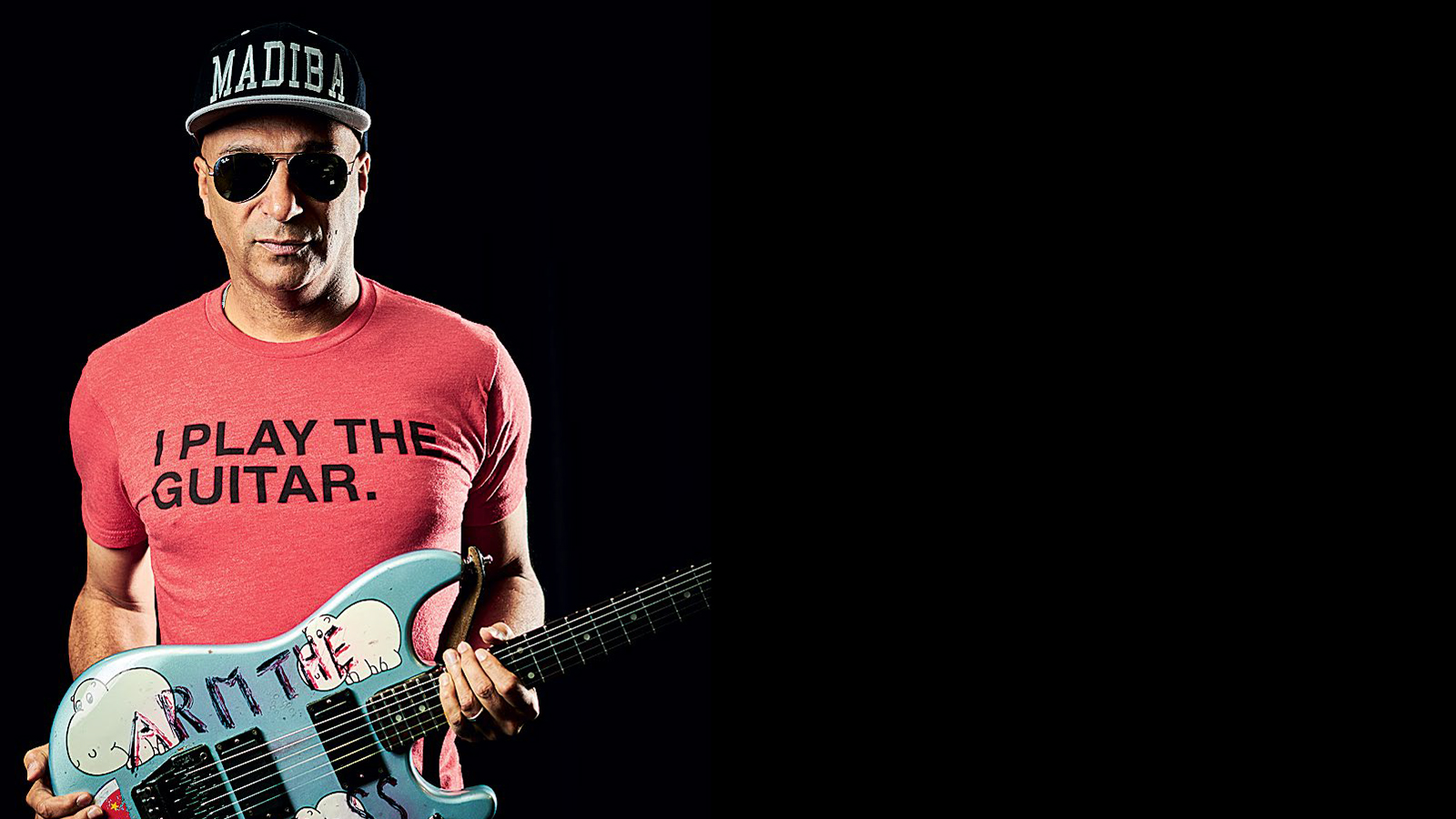
29. One hour of practice means one hour
Morello: "It’s about dedication just as much as regular practicing: If you’re serious about becoming better, you practice at least one hour every day, without fail. Not 58 minutes a day or six hours during the weekend.
"If you really mean it, you’ll play if you have a cold or if you have an exam in the morning; you’ll play no matter what because you have already committed to it. And it’s that commitment that will yield better results."
30. Wash your hands before you play
Morello: "Your strings will last a lot longer, and if you don’t have a lot of money to replace them, that’s a good thing!"
31. Don't be a dick
You could be the second coming of Shawn Lane, but if you’re a dick, word is going to get out and nobody will want to deal with you. People want players they can hang with. Remember: Most of your time spent with other musicians will be offstage, so don’t be rude - to anybody. You might think you’re irreplaceable, but you’re replaceable!
32. Be dependable
OK, we admit this is a subdivision of Don’t Be a Dick. It’s pretty simple: If you say you’re going to be at rehearsal, be at rehearsal. And if you’re going to be late, send a text. Making people wait around for you is rude - and it’s a sure-fire way to get your ass kicked out of a band.
33. Prep your gear, David Gilmour-style
David Gilmour’s long-time tech, Phil Taylor, let us in on how he builds foolproof reliability into David’s gear while touring. First, Gilmour’s black Strat was packed away as soon as it came off stage at the end of the show.
Phil then explains what happened next: “In preparation for the next show, the guitar is unpacked and acclimatized, then it goes through a daily maintenance routine - string height and action are checked, frets cleaned, friction points inspected and lubricated as required, cleaned, restrung, strings stretched, screws tightened, tremolo arm seating and movement checked, played/tested to ensure tuning stability and checking of pickups and electronics. Then it’s ready to be handed back over to David."
Mark Tremonti

34. Learn all five pentatonic scales
Tremonti: "Most people only learn the first position, and maybe they get a little of the second and fifth boxes. They don’t realize there are five different shapes, all across the neck. Knowing all the pentatonic scales gives you the freedom to play across the neck. If you just learn the one box, you’re trapped."
35. Learn to improvise using bending and vibrato
Tremonti: "Focus on simple phrasing, but when you do so, make sure you hit pitch when you bend notes. Also, work on your vibrato technique, making sure it’s got a nice singing quality to it. A big part of people’s signature sound is how they use vibrato. Every time you play guitar, spend a good hour improvising and working on your bending and vibrato."
36. Play over chord changes
Tremonti: "Once you’ve developed your bending and vibrato, focus on chord changes. When soloing, make sure you hit the sweet notes at the time one chord goes to the next. It makes it sound like you know what you’re doing, and it gives so much passion and soul to your soloing. Don’t just stay on the same notes when the band changes keys."

37. Pay attention to your bandmates' playing
Self-awareness is great, but also pay attention to what others are playing. When you’re on stage or in the studio, don’t be in your own world - listen and interact with the other musicians you’re working with. React to what they’re playing. Don’t overwhelm them with volume or too many fills. Let somebody else have a chance to solo. You have an ego, yes, but keep it in check.
38. Put square pegs into round holes
Some people thought Zakk Wylde was nuts when he started putting country licks in Ozzy Osbourne songs. Guess what? It worked beautifully. Sometimes you have to stop playing things safe by doing what is expected of you. If you hear something that’s a little left of center, go ahead and try it. What’s the worst that can happen?
Phil Collen

39. Try to sing
Collen: "A lot of guitar players are intimidated about singing. They’re very confident of their guitar skills and their ability to shred like crazy, but put a microphone in front of them and they freeze up. That’s crazy.
"Everybody can sing, and I think everybody should sing. Singing opens you up to new musical possibilities, even if you just sit there and scat-sing while you play. Don’t be afraid to open up that throat - you might be pleasantly surprised by what comes out."
40. Keep a guitar in the bathroom
Collen: "I play the guitar a lot when I’m on the toilet. I’ve practiced and have written many a song while sitting on the shitter. It’s probably not healthy - doctors will say, ‘You’ll get hemorrhoids if you spend too much time on the toilet’ - but I think it’s very therapeutic. Why not keep one in the bathroom? Think about it: How many times are you on the toilet and a great idea comes to you?"
The audience isn’t picking apart each little subtlety. In a monitor mix, it all gets kind of mashed together
41. Be aware that you're part of a team
Collen: "As a guitarist, you’re a star in your own mind. You’re paying attention to everything you do, and you’re hyper-focused on all of this minutia. The reality is, the audience has no idea. They’re listening to the singer and the overall sound of the whole band.
"The audience isn’t picking apart each little subtlety - ‘Oh, the drummer’s kick drum sounds like this. The guitarist’s pitch sounds too whatever.’ In a monitor mix, it all gets kind of mashed together. It’s the whole band together, a team process. So don’t get too wound up about stuff that nobody can hear. Play your best and have a good time."
Alexi Laiho

42. Focus on your picking hand first
Laiho: "Forget about the [fretting] hand for a while. Work on your [picking] hand. And I know it’s boring as hell, but the metronome should be your best friend. To become an advanced guitarist, you need to go through all the boring stuff before you are at a level where you can even try to attempt the riffs or leads that all the shredder guys are known for.
"Start with the basic scales and start slow. The second you notice it’s starting to sound scratchy or you feel you can’t keep up any more, dial it back and try again."
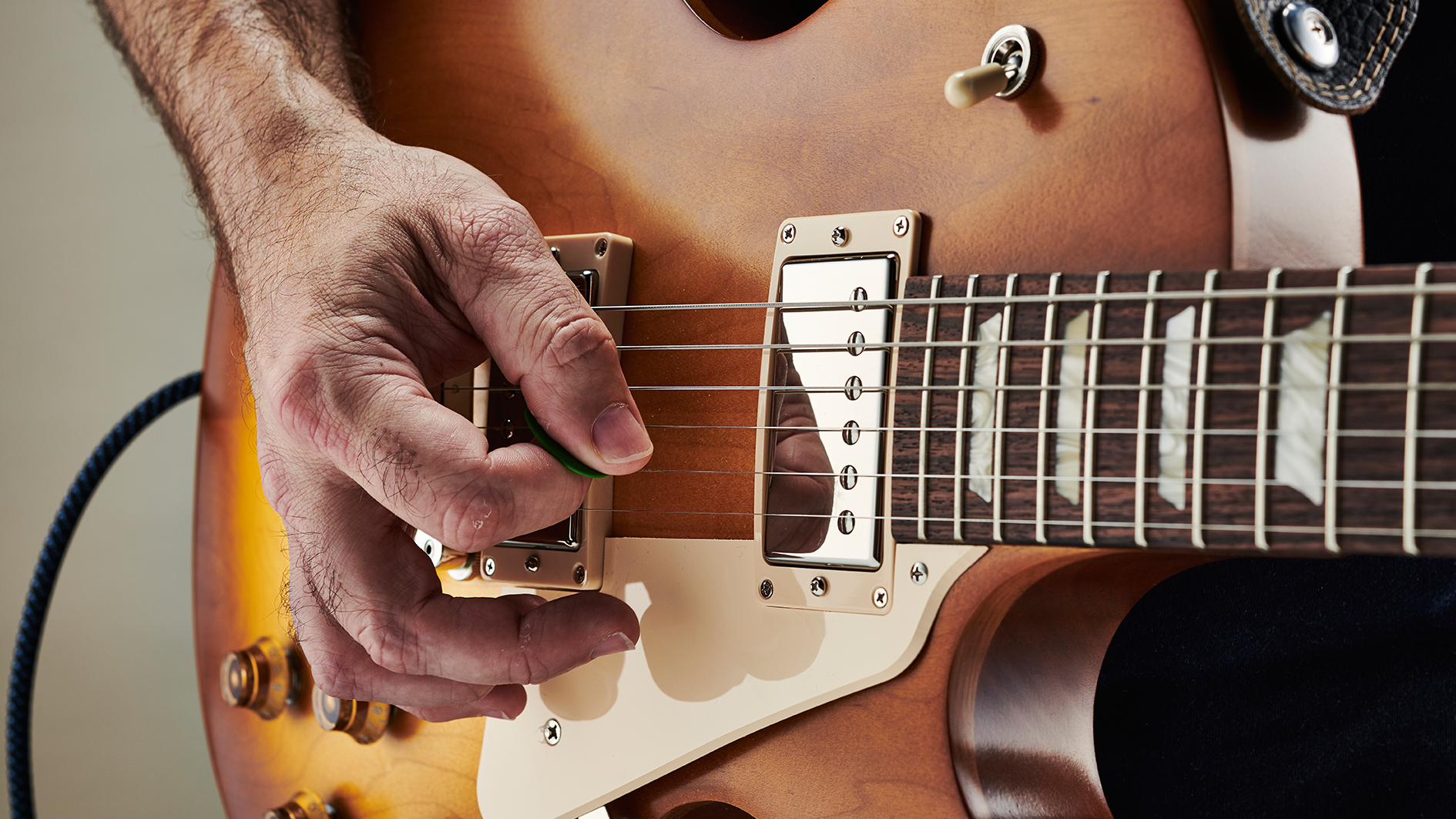
43. Add to your pentatonic scales
Laiho: "One thing I like to do with the pentatonic scale is throw in extra notes like the major third or major sixth, which can give you a really good, almost jazzy flavor. When you do it really fast, it’s kind of hard to notice there are major scale notes hiding in there. That said, I don’t use major sixths in chords.
"I might use the minor sixth, but even then it doesn’t really tend to pop out that much. I have been playing more three-note-per-string pentatonics recently, too. For the more outside scales like diminished or whole tone, you need to fiddle around with things and figure out where you can use them and where you can’t."
44. Learn some classical theory
Laiho: "I learned theory in music school as a kid, starting out on violin at around age seven. The left-hand side of it is quite similar; the right hand is a whole different sport entirely. I think it definitely made playing guitar easier for me; it must have helped. Some of the classical composers like Paganini were crazy… It’s good music to challenge your ears as a guitar player."
45. Sit down at a drum kit
It’s one thing to play with a drummer, but if you really want to get an understanding of how a drummer thinks and operates, try sitting down at a kit. Not only will you start to feel rhythm in a new way (which will improve your ability to get “into the pocket”), but you might develop some real sticksman chops - and you’ll be able to explain your musical ideas better.
46. Protect your hearing
Yes, Beethoven still composed after he went deaf, but there was only one Beethoven. And seriously, do you want to go through the rest of your life with no (or seriously compromised) hearing? Of course you don’t. In loud rehearsal settings, always wear earplugs - they’re available at any music store or online. And they’re a lot cheaper than visits to an audiologist.
John 5

47. Cleanliness counts
John 5: "[This is true] in all areas of life, and of course, it’s important for playing the guitar. Try to play every note cleanly. Be efficient and articulate with what you’re playing, and pay attention to your technique at all times. I try to play everything as if I’m playing it on one string - that’s how clean I want it to sound."
Jim Root

48. Warm up
Root: “I’m not the type of guy who sits at home with a metronome and runs through scales and stuff like that. But I do go through phases when I’ll be more diligent, and I notice that warming up and working on some patterns will make my playing cleaner. On tour I’m probably more into practicing. I’ll sit backstage or on the bus with a little amp, and I’ll run through scales to warm up my fingers.”
49. Just get going
Root: “There’s no one way to do anything in music. There are no rules; there are no written instructions to follow. So whatever you want to do, just get going. I started out playing with different drummers in basements before there was even a band. It didn’t matter, though, because I was already on my way. Give yourself a challenge, and just get on with it.”
“So whatever you want to do, just get going. Give yourself a challenge, and just get on with it
Jim Root
50. Learn the whole song
Don’t just learn riffs and solos of songs you like - play the whole thing. Nothing impresses people more than when a guitarist sits down and plays a song from start to finish. Plus, you might get in a situation in which other musicians want to jam. What are you doing to do, say, “I don’t know that part?”
51 - 75
51. Know your neck
And by that, we mean your fretboard. Ever see a guitarist hit a wrong note and then scoot around trying to find the right one? It’s cringe-inducing, to say the least. Learning all of the notes on every fret of every string is the best way around that. Not only will it help your sight reading, it’ll improve your sense of harmony. The best way to learn your notes is to go across a fret as opposed to up and down.
Ben Harper
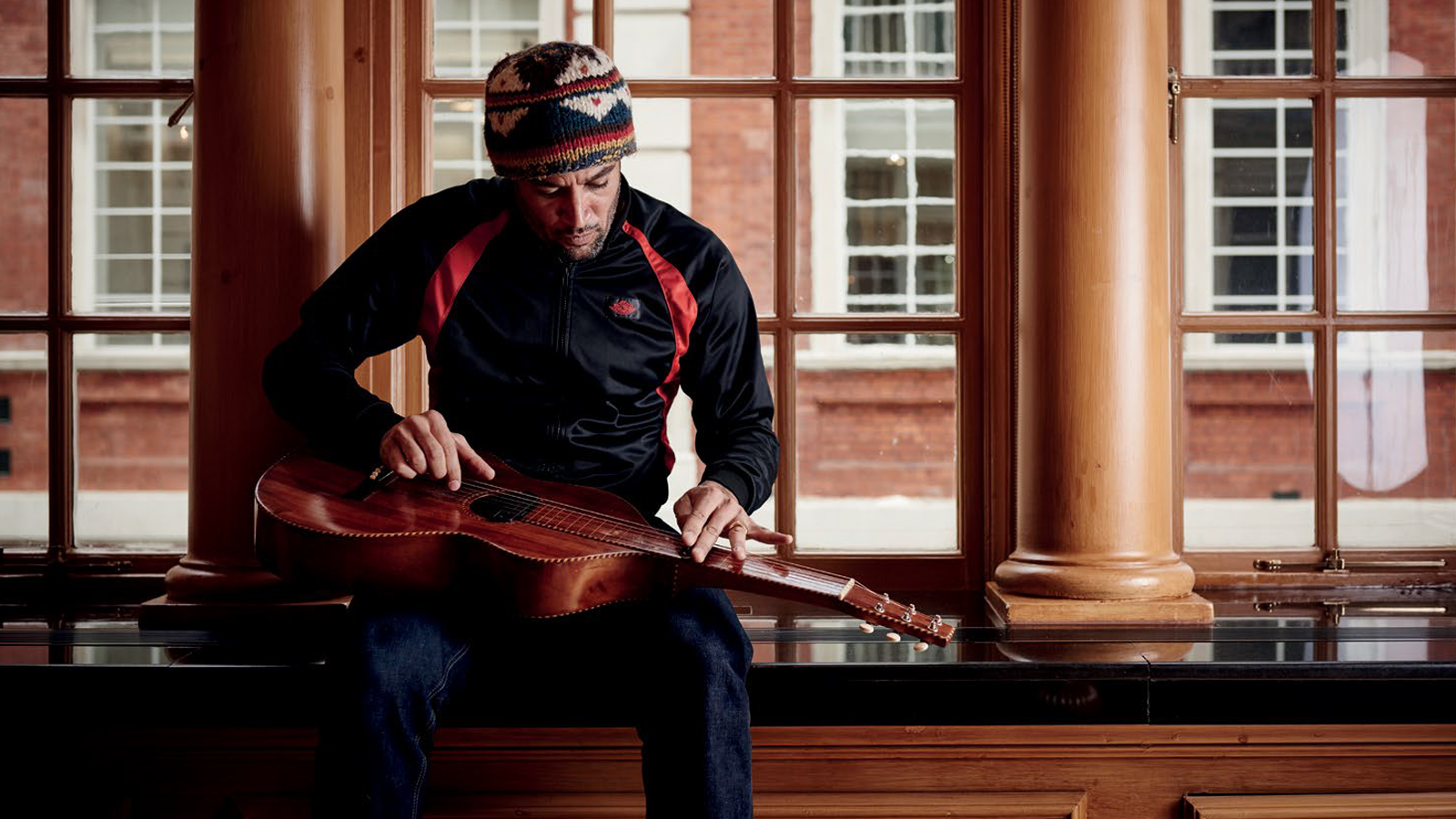
52. Look for inspiration in different sounds
Harper: “Find a decent and affordable reverb pedal and dial it to where it’s not over-saturating the notes and just complimenting them, depending on what you want to hear. Something that simple can inspire all kinds of musical and lyrical directions. It can take you down a different road sonically, which will take you down a different road lyrically.”
53. Learn solos by other instruments
Guitarists have a certain language and approach, as do musicians who play other instruments. Every hear a solo by a sax player or a keyboardist and think, “How does he do that?” Well… give it a shot. Learn that solo on the guitar. It’s a great way to get “out of the box,” and it might spark new ideas for fingerings and sounds.
We’re honestly not trying to push our transcriptions on you, but try to track down the Holiday 2018 issue (with Nita Strauss and Alice Cooper on the cover), where we transcribe the famous fiddle part from The Devil Went Down to Georgia. Learning it on guitar is an eye-opening experience!
The Beatles were ignored by every label in Britain until George Martin heard something in their sound. Believe in what you’re doing
54. Have a practice plan
If you want to see real improvement in your playing, have a plan for your practice sessions. First off, have a dedicated schedule and stick to it. Next, divide your practice time into sections: so much time on warming up, so much time on technique, so much time on free-form playing, and so much time on learning material.
55. Have a back-up plan
Dream big and work on your music, but remember that not all guitarists hit the big time or even make their living from playing music. Unless you’re sitting on a trust fund or marry into money, have a back-up plan. Stay in school, pursue a career. If you manage to snag a big record deal or get hired by a touring band, you can cross that bridge when you come to it. Until then, it’s best to have a long-term plan.
56. Don't listen to people who say you suck
Opinions are like… well, you know the rest. Criticism is valid, and you should take advice to heart, but just remember: Every famous band or guitarist has been told, at one time or another, that their music wasn’t happening. The Beatles were ignored by every label in Britain until George Martin heard something in their sound. Believe in what you’re doing.

57. Listen to people who say you suck
As pointed out above, criticism is sometimes meaningful. Maybe there’s something in your approach that could be fine-tuned. Perhaps you have most of the elements together but something is still off. Listen to what people are telling you; more often than not, they’re giving you helpful advice. It’s up to you to decide.
58. Don't be afraid of the hard stuff
It’s only natural: We avoid learning hard lessons and songs because, well, they’re hard. We’re going to sound like crap bonking this note and that. It’s humiliating and demoralizing. You know what else is humiliating and demoralizing? Never being able to play past your skill level.
So dig in and try that hard piece. Yes, you’re going to suck at first, but give it time. One day, before you even know it, you’ll have a breakthrough, and you’ll be able to play stuff that used to be unthinkable.
59. Get more from soundchecks
How you communicate with the sound engineer is key to a rapid, trouble-free soundcheck. Top tech Chris Lawson says: “The classic one with a small band is that everybody’s talking at once - that’s the one thing that no monitor engineer can deal with. If you’ve got a five-piece band on stage and they’re all asking you for stuff at the same time then you can’t do anything.
Having a good guitar is important for a number of reasons, chiefly your ability to play properly
"When you get to your monitor point, everyone else should shut up and, likewise, you should shut up when they’re doing their mix. One at a time and you’ll get there much quicker and you’ll get what you want.”
60. Use open tunings for normal playing
Artists as diverse as Joni Mitchell, Coldplay, Sonic Youth, Richard Thompson, John Martyn, CSN&Y, Keith Richards and even Status Quo have made great use of open tunings. Whether a simple drop D (sixth string down a tone), open G (D G D G B D), open E (E B E G# B E) or DADGAD, open tunings can inspire your creative side.
61. Buy a decent guitar
Having a good guitar is important for a number of reasons, chiefly your ability to play properly. If a guitar has lousy tone or action - if it’s difficult to play (i.e., harder than it has to be) - you’re going to be uninspired, and you’ll put the thing in the closet.
- Here are the best cheap electric guitars under $500
- Looking to stretch your budget further? Here are the best electrics under $1,000
These days, it’s relatively easy to buy a decent, playable guitar that doesn’t break your bank account. So don’t settle for a hunk of junk.
62. Don't spend all of your money on a guitar
On the other hand, there’s no reason you have to go broke buying a good guitar. All music stores sell very decent, entirely playable models that are well within your price range. You just need to put in the time and try out as many instruments as you can. Plus, you can go online and find good, affordable guitars. Expensive doesn’t always mean the best.
63. Learn how to fly
“If you’re travelling by plane, don’t put your guitar in a gig bag and try to blag it into the cabin,” says jazz guitar supremo Martin Taylor. “It may work a few times, but on the occasion when the cabin crew refuses to allow the guitar into the cabin, your guitar will be taken off you, checked into the hold in its soft gig bag, and probably won’t survive the baggage-handling ordeal.

So buy a really good flight case and check the guitar into the hold or buy an extra seat for your guitar and travel with it in a soft gig bag.”
64. Buy a travel guitar
Whether you’re heading out on vacation or a quick weekend getaway, you might want to leave that prized ’57 (or ’20) Telecaster at home. But you can still keep your fingers limber and capture bits of spontaneous inspiration with a good, inexpensive travel guitar. Music stores and websites are loaded with suitable choices that won’t break your wallet - and you won’t feel bad if they get banged up.
Mark Morton

65. Think about the pulse
Morton: “One of the things I look for when writing is some kind of groove. It’s not about playing as fast as you can, but assessing what kind of pulse you want a riff to have. Give it some real groove and swagger so that it has personality. When you lock in on that stuff, you realize that’s what makes thrash metal thrash.”
66. Have fun instead of sticking to a metronome
Morton: “I never had the metronome. I’ve always just played guitar. I would burn up cassette tapes just from all the fast-forwarding and rewinding to learn songs. But I’ve never been one to sit there, learn a lick, put on the metronome and speed it up slowly. God bless people who can do that, but that’s just not fun to me. That’s why I’m not a shred-fast guy. When it comes to playing the solo, I will play some blues shit.”
67. Cleaner guitars sound heavier
It’s important to remember the sound is mainly in your hands and in your guitar
Mark Morton
Morton: “I have learned over the years that less gain and cleaner sounds tend to feel heavier sonically. Even the Black Album [Metallica] doesn’t have super-distorted guitar tones. I have learned through experience that dialing the gain back for cleaner tones, especially if you double up guitars in the studio, seems to have more mass and a broader spectrum.
"We all need gain and sustain to a certain degree, but sometimes people get a little too caught up in that stuff. It’s important to remember the sound is mainly in your hands and in your guitar.”
68. Play with people who can dust you
You want to be a better ball player? Play with somebody better than you. The same holds true with music: There’s no faster or more beneficial way to improve your musicianship than to play with musicians who can dust you. Don’t worry about looking foolish - if the other people are mature, they’ll help you along. Pretty soon, you’ll be equally matched and can make beautiful music together.
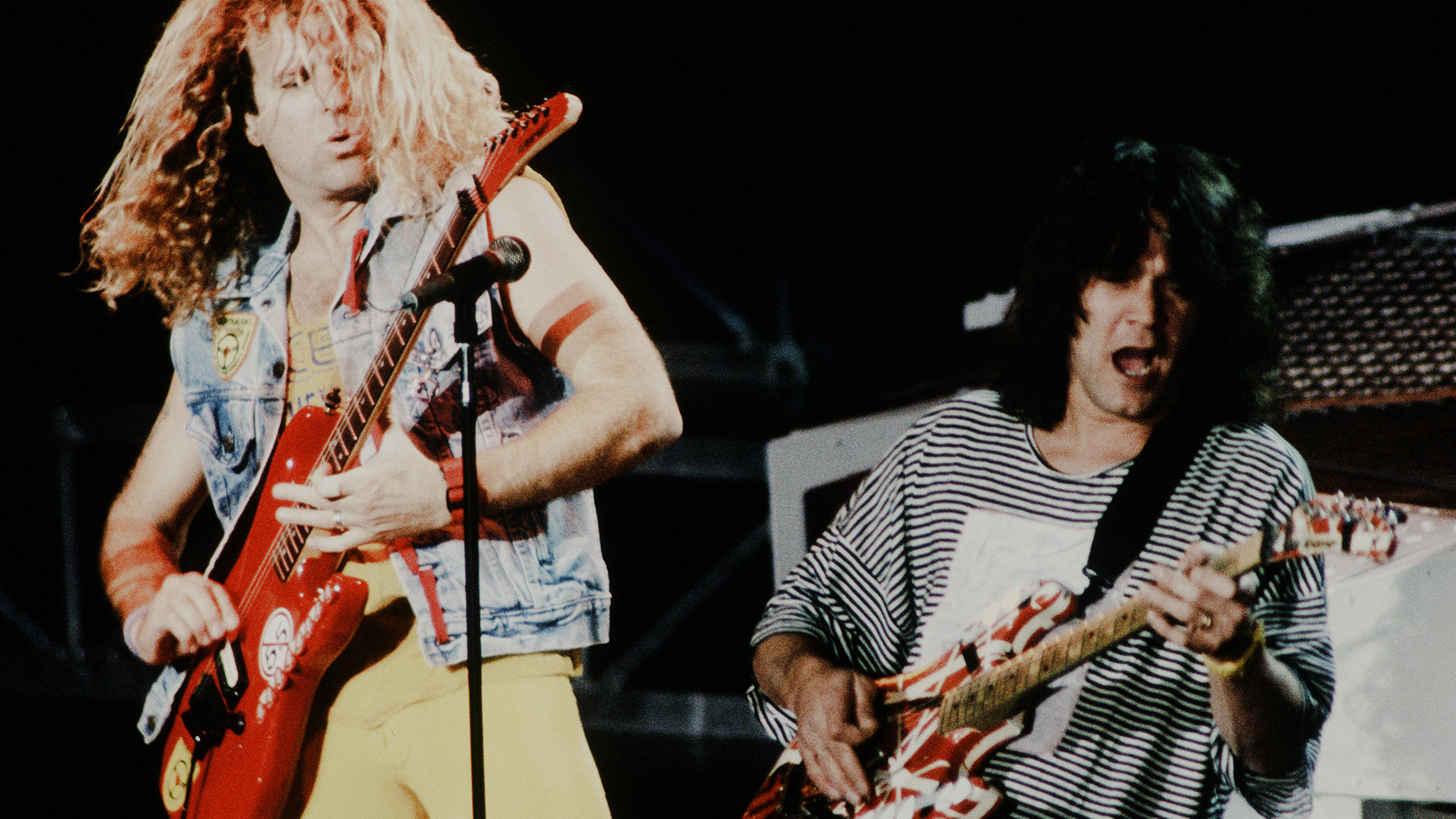
69. Take care of your hands
"They’re essential tools, so look after them. If your fingernails on your fretting hand get in the way, trim them and keep them short. On the other hand (literally and figuratively), you might want to keep your picking fingernails longer to facilitate certain styles of playing. Always keep nail clippers or a file with you, and keep your hands clean - dirt can get on your strings easily."
70. As soon as you learn something, use it
Ever learn something - an important fact, say - and a week later you can’t remember it? That can happen with guitar licks, too. You play something and it’s awesome, but several days later you can’t quite get it right. Solution: The second you learn a great lick, fit it into a song - and, of course, you need to record it.
71. Sing your guitar parts
Sometimes your best guitar parts might be in your head - your imagination will effortlessly go somewhere your fingers don’t. That’s fine. Sing your parts. Open up your mouth and scat. You can always transpose that melody to the guitar. (This is especially effective if you’re in your car and don’t have your guitar with you. Pull over and just record your vocal line. When you get home you can play that great new idea.)
Guitarists get caught up with learning scales and solos, but they sometimes forget that none of those things matter without actual songs
72. That perfect pick is out there
OK, guitar picks aren’t a dime a dozen anymore, but they’re still pretty inexpensive. There are traditional rounded shapes, sharp triangles, squares, heavy-gauge, medium, extra floppy, soft picks, picks with ridges, metal picks, glass picks - and on and on. Try ’em all out.
Some players find that perfect pick they use for all occasions; other times, they might prefer another kind of pick for a certain style of music. Whichever way you go is up to you.
73. Learn how to write
Guitarists get caught up with learning scales and solos, but they sometimes forget that none of those things matter without actual songs. You can shred your butt off, but unless your soloing is part of a good piece of music, who will hear it? Focus on writing. It’ll increase the likelihood that a band will want to hire you: “Hey, that guy can really play. And he’s got some amazing songs, too!”
74. Learn how to produce
If you don’t want a producer to screw up your music, learn how to produce. With today’s technology, it’s much easier than before - you can record your band or yourself in your basement or living room to your heart’s content. You might become so good that other artists want to hire you.
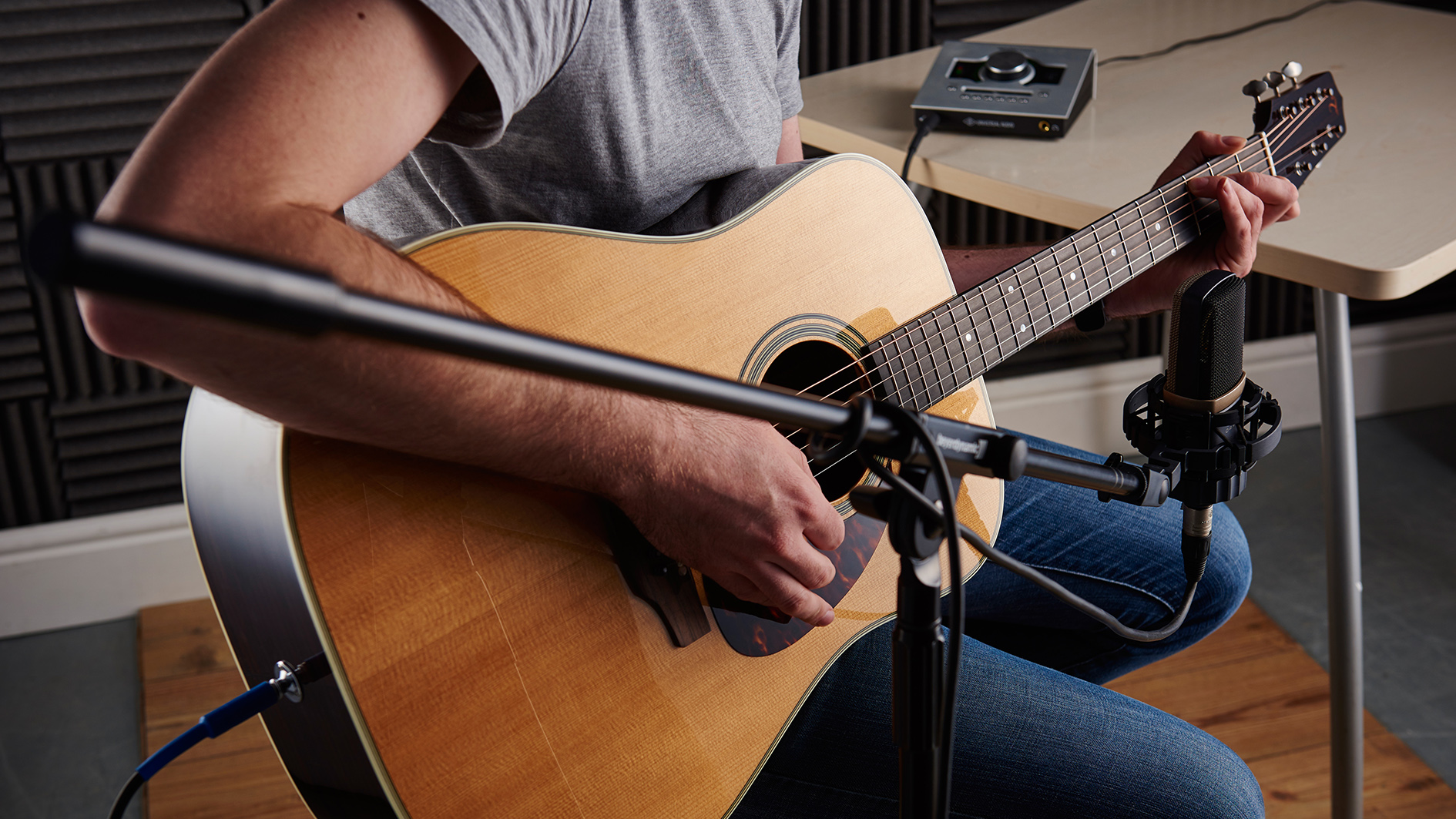
75. Looks do matter
OK, not everybody can be pin-up material, and unless you’re planning to be a front person, you probably don’t have to be the next Mick Jagger. That said, you need to look appropriate for a band you’re joining. If you’re auditioning for a death metal band, don’t come in looking like an Allman brother; if you want to hook up with a jazz trio, leave your bondage gear at home.
76 - 100
76. Don't be a show-off
If the bassist is doing a cool passage, let him. You’ll get your chance soon enough
This could be a companion to Don’t Be a Dick. Sure, every guitar player wants to shine on stage, but you have to pick your moments. Always remember the singer and the song are the stars - you have to enhance them without overwhelming them. Don’t play over the singer. If the bassist is doing a cool passage, let him. You’ll get your chance soon enough.
77. Be a show-off
On the other hand, when the spotlight shines on you, let ’er rip. Eddie Van Halen didn’t become “Eddie Van Halen” by being a shrinking violet. Give the crowd something they can remember. If you’ve got it, flaunt it. (But always remember when to lay back; and for chrissakes, if the band starts playing a song you don’t know, lower your volume or get off the stage!)
78. Learn the music business
You know who gets ripped off? People who don’t know the business. There are many great books available that take you through publishing, distribution, marketing, etc. If you know friends who are making money with their music, ask them how they do it. Who’s their lawyer? Who’s their manager? Ask questions - and never, ever sign anything you don’t understand.
79. Get a good strap
You’ve just spent $2,000 on that beautiful guitar, so why are you still using your brother’s flimsy $10 guitar strap? If you don’t want that awesome axe crashing to the floor mid-gig, invest in a good guitar strap, one that locks to your instrument and keeps it secure at all times.
80. Keep your phone nearby
Back in the day, guitarists had it hard: They’d come up with a lick or a song idea, and they had to keep it in their heads before they could get to a recorder. Nowadays, we have no reason to let that great new lick or song slip by. When is your phone not near you? Answer: never. It’s always in your pocket. (You probably butt-dialed somebody while reading this.) So the second you come up with that spark of genius, pull out that phone and record it.
Eddie Van Halen

81. Theory is... theoretical
Van Halen: “Obviously, enjoy doing what you’re doing. Bottom line is, you’ve gotta love what you’re doing. There are no rules. I think it’s funny when people take all these music theory classes. It’s exactly that. It’s theory. You know? You have 12 notes, the 13th one is the octave, do whatever you want with them. It’s really that simple. There are no mistakes: I call those passing notes!”
82. Get out of your room
You have to put the time in - we get it. Woodshedding on the guitar is often a solitary pursuit. But there comes a time when you have to take what you know and see what you can do with it, and the only way to get there is to go there.
Play with people in your area - maybe you can form a band. If there’s a club that has jam sessions, see if you can sit in. Playing with other musicians, no matter their level of expertise, is an invaluable experience that will add to your musical development.
Mick Thomson

83. Pick up a bass
Thomson: “Using different tools helps you break out of the mold. After playing for a number of years, you fall into a certain pattern that’s just you. You become “you” more and more over time, and it gets hard to strip back and see other things. Writing on bass is such a different approach, plus it’s good for your fingers.
"You have to stretch more because of the scale length. Simply for the athletics, playing bass is great for guitar players, and it offers a different perspective musically.”
84. Watch classic Paul Gilbert videos
At one point in the video, Paul pulls out the drill. We looked at it each other like, ‘What the fuck just happened?’ That’s not even human
Mick Thomson
Thomson: “Early on, a lot of my picking development came from a Paul Gilbert video on VHS. That three-note-per-string thing [9, 10, 12 on the D, 9 on the G and back] is something I did a lot when I was younger. I remember seeing it when I was around 14 because a friend had it.
"At one point in the video, Paul pulls out the drill. We looked at it each other like, ‘What the fuck just happened?’ That’s not even human. That’s not even real. How can anybody do that? It was so far beyond my comprehension.”
85. Add your own little colors
Thomson: “There probably aren’t a lot of metal bands that use bends as much as us. I have to stop myself, because I do a lot of ghost bends, like on the [Slipknot] song ‘Eyeless’ - when I recorded that, I thought it was cool having the bottom drop out by using the wang bar. I would do things with picking and harmonics, bends and squeals…
"I was always into the idea of making music sound even more evil by incorporating those techniques. Anything that adds texture, color or uniqueness to what you do is a tool.”
86. Don't give in to fear
Fear of failure, stage fright, insecurity about your abilities - there are lots of ways to psych yourself out of success, and by no means are we suggesting that they can be easily overcome. Sometimes the best way to get past your fears is by simply doing it; like jumping in the water was the only way to learn how to swim.
Other times, however, the problems need to be addressed in other ways. Talk to other musicians, or maybe look into counseling. Understanding what’s at the root of your insecurities is often the first step toward tackling them head-on.
When you’re in a rehearsal or onstage situation, point your amp’s speaker toward your head rather than toward your ankles
87. Give your playing the middle finger
If you find that skipping strings with your pick is difficult, try using your picking hand’s second (middle) finger instead. This is a favored technique for numerous country guitarists (and a growing number of blues and rock players, too) who find that they can skip strings smoother, easier and faster this way.
88. Aim for the head
When you’re in a rehearsal or onstage situation, point your amp’s speaker toward your head rather than toward your ankles. It will give you a better idea of your true tone.
89. Go out and see live music
It’s easy to get stuck inside your own bubble. Sometimes it’s good to shut out the world and tune out too many influences; you can develop your own sound and craft a distinct approach to music.

But it’s also just as valuable to get out and see what other musicians are doing. Absorb what you’re seeing - you can nick a little from this band and a little from that one, and before you know it, you’ve added new dimensions to your music.
90. Know your place
If your bandleader wants you to play something his way, do it - unless you have a better idea (and you had better make sure your idea is awesome before you present it). If you can’t hack being a sideman, strike out on your own.
Can you ever know too much? No. Every bit of musical information matters
91. Take lessons
Can you ever know too much? No. Every bit of musical information matters. Find a good teacher who is beyond your level, and ask him or her to present lessons that take you somewhere new. It might be difficult or even boring at first, but there will come that day when everything clicks - and you’ll be a better player for it.
92. Use the power of three
A big part of countless guitarists’ chord chops is the use of three-string voicings - there’s enough content to spell out a chord’s function and the spare fingers are then free to add other notes or melodic embellishments.
Think Jimi Hendrix’s Little Wing (or The Wind Cries Mary) meets Nile Rodgers’ Le Freak via the Rolling Stones’ Start Me Up, to get you going on this fruitful and enjoyable road to chord mastery!
Jake Bowen

93. Learn to relax
Bowen: “Being in a band is a form of self-abuse! [Laughs] I need to relax more. I need to take more deep, full breaths. I need to relax my shoulders. I need to realize that not everything needs to be done perfectly every time. I try not to take things too seriously lately. Everything in life is about balance. We set such high expectations on ourselves as players and as members of Periphery - it can be exhausting, and it can be stressful.”
94. Learn to play your tone
Bowen: “A lot of people hear the players they like and they want to emulate them. They’re like, ‘This player uses a Dual Rectifier with some delay, and maybe a compressor, and some other things.’ And what that does is, the compressor will even out your volume, and it’ll make the attack the same so that your legato pops out more without having to really fine-tune it.
When you are in a rut, or you are not feeling creative, it is always in there. It’s just up to you to discover the potential and learn how to harness it under pressure
Jake Bowen
"And then the delay will cover up your missing notes and that will also improve your legato. So if you go to a different amp with less gain and less compression, and not as wet a delay, you can actually hear what your playing sounds like.”
95. Stuck in a rut? Don't worry - your creativity will return
Bowen: “When you are in a rut, or you are not feeling creative, it is always in there. It’s just up to you to discover the potential and learn how to harness it under pressure. You have to take yourself out of the music and do other things that you enjoy and trying not to stress yourself out.
"Just being outside, hiking, hanging out with my dog and just walking around where I live and doing things outdoors really helps clear my head, and it makes me feel more connected to the world than any of this [smartphone] shit.”
Eddie Martinez
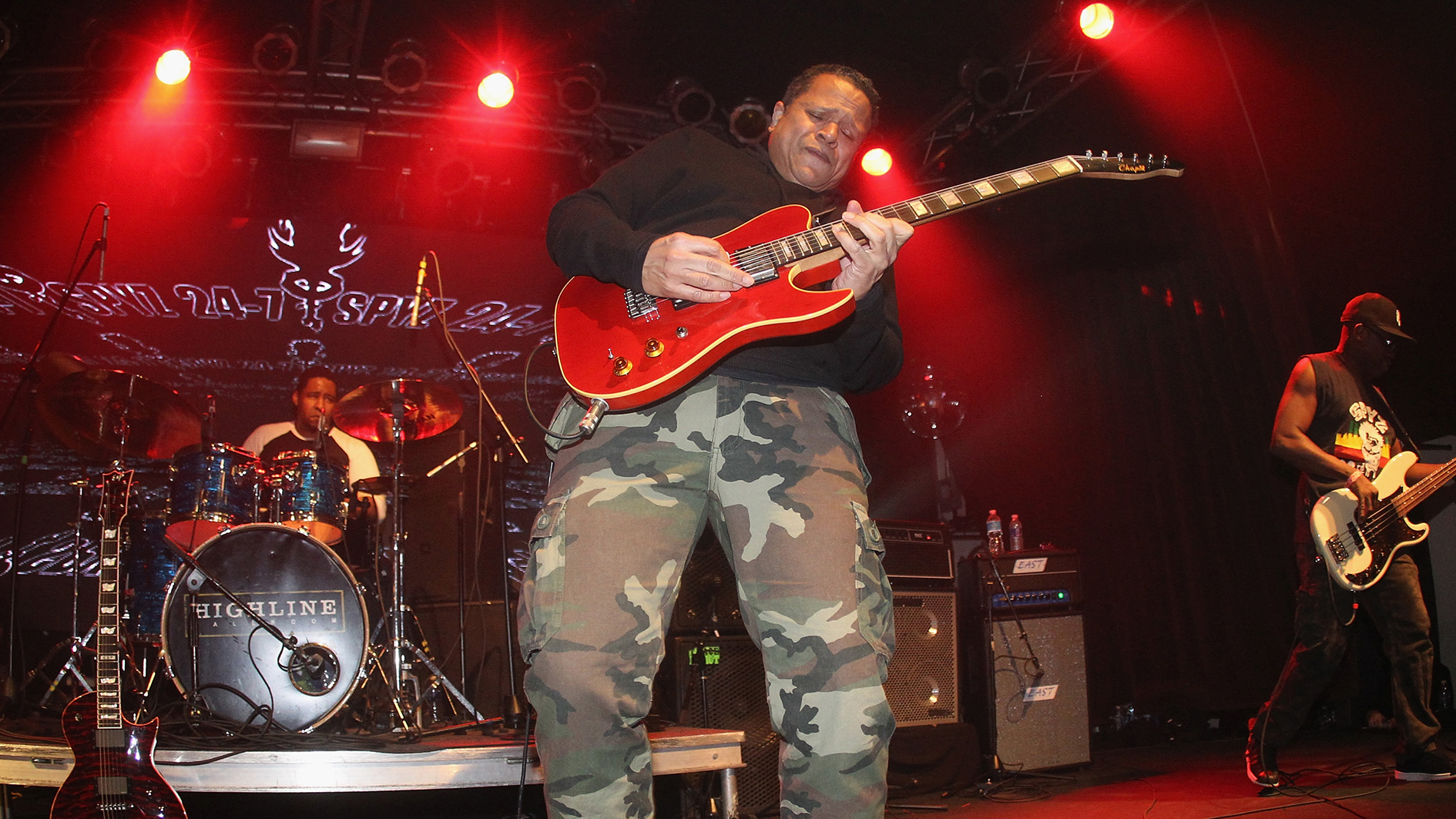
96. Make sure your gear is gig-ready
Martinez: “No matter how much or how little gear you have, make sure it’s working and ready for the job. If it’s one guitar or a trunk of 10, make sure they’re all intonated properly and have fresh strings. The last thing you want to do is pick up a guitar and have an engineer say, ‘What’s wrong with that thing?’
"Remember: studio time costs money, and budgets are smaller than ever now. You don’t want to be the one working on your gear and trying to get it to sound right while everybody else is standing around.”
97. Think like a novelist
You can’t write a good book unless you have a strong beginning, middle and end. Without those key elements, a story will drift off and go nowhere. The same is often true with solos. Think of the best way to begin a lead; then imagine how it should end.
Listen to great slide players. It’s all about finesse. Relax and take a breath
Samantha Fish
Once you know how you’re going to get in and out, you can come up with the bulk of the solo - your middle. And then, voila - you have a dynamite solo that tells a story!
98. Slide it on over
This tip is actually five slide-guitar tips in one, courtesy of Kansas City blues-rocker Samantha Fish, one of today’s most exciting slide players: 1. “Try different tunings. You’ll challenge yourself and find cool tricks within that tuning. 2. Slow down. Find a melody and play it. Shred later! 3. Find the slide that works best for you. Try brass, glass, ceramic - have fun with it. 4. Get a volume pedal! 5. Listen to great slide players. It’s all about finesse. Relax and take a breath.”

99. Don't despise a touch of chorus
"A little bit of chorus on the clean sound can help a lot,” says effects guru Mike Piera of Analog Man. “It adds something and makes it sound a little better. If you have it set very faintly it’ll sound nice. You don’t really hear the chorus, but when you turn it off you’re like ‘I sound kind of flat now!’”
100. And above all... never, ever give up
Last year, Fender CEO Andy Mooney pointed out that 90 percent of new guitarists abandon the instrument within a year. Don’t be a statistic! The best way to lose a game is by not playing. All musicians experience ruts and obstacles: creative blocks, business opportunities that go nowhere.
Sometimes the walls seem insurmountable. But the surest way to fail is to give up. Every successful musician heard “no” numerous times before they heard “yes.” And all of them wrote crappy songs before they came up with a hit. So no matter how difficult things seem, just keep going. If you want it bad enough, it’ll happen. The only real obstacle… is you.
Joe is a freelance journalist who has, over the past few decades, interviewed hundreds of guitarists for Guitar World, Guitar Player, MusicRadar and Classic Rock. He is also a former editor of Guitar World, contributing writer for Guitar Aficionado and VP of A&R for Island Records. He’s an enthusiastic guitarist, but he’s nowhere near the likes of the people he interviews. Surprisingly, his skills are more suited to the drums. If you need a drummer for your Beatles tribute band, look him up.

